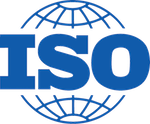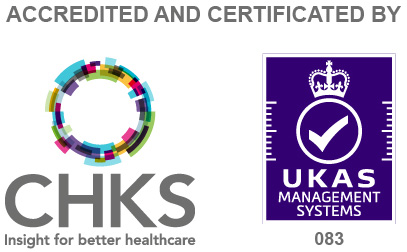FAQs
If you are a self-pay patient, you will need to be referred to us by your consultant. We also accept referrals from Health Insurance companies, Legal Firms, Embassies and Governments. Please see our page on Referrals.
Your consultant should advise if you are well and able enough to receive therapy at home (Outreach), or if you would be better off coming to the Neurorehabilitation Centre for a length of time depending on your needs and requirements. Patients who stay at Ascot Rehab not only come for the therapy but to recuperate in a safe and welcoming environment, enjoy the cuisine, the facilities and be looked after by a friendly and professional team. If you would like an independent assessment either at home or at the centre, this can be arranged.
A typical stay will include your private room with en-suite shower room, a daily choice of cuisine and refreshments, toiletries and towels, daily housekeeping and laundry service, nursing care and weekly neurotherapy. Any prescriptions, diagnostic tests, ambulance transfers and any costs related to the centre such as telephone calls, reading material on request (newspapers, magazines), extra meals for friends and family or bolt on services such as taxis and spa treatments are not included.
Of course, we’d love to show you around. We can also arrange for a one-day assessment at the centre to see the facilities, meet the team and enjoy lunch and/or afternoon tea. The report will be sent to your consultant.
Again these will vary from person to person. They may be one-to-one, or with two or more therapists combining different types of therapy disciplines at the same time. Therapy sessions may take place anywhere in the neurorehabilitation centre such as a therapy room, your own room, in communal areas, or involve real-life situations such as going out, using the bus, shopping, going for a coffee or lunch. Likewise sessions at home may include sessions indoors and outdoors. You may also be asked to do things on your own or with a group of other people outside of therapy sessions such as carry out an exercise programme or organise a trip somewhere. Therapy is more than your individual sessions; you need to link it in with everyday activities and situations outside your session time to get the most out of it.
Our neurotherapy team will assess you during your first week to determine your rehabilitation programme, bearing in mind your abilities, fatigue levels and your goals. We see assessment and getting to know you as a crucial foundation for your rehabilitation.
It is important to remember most people will not see large improvements in their first week here. We aim to be as honest and transparent about your potential for progress and improvements we expect you make. Rehabilitation is about working together towards your goals for the best possible outcomes.
There is no typical week at the rehabilitation centre, or as an outreach patient, as programmes are bespoke and will vary for each person. Each week you will receive a timetable showing your therapy schedule and suggestions for exercise out of therapy hours. Whilst you will be encouraged to spend your free time constructively, following exercises or strategies for therapy, patients should bear in mind that neurotherapy can be extremely tiring and sufficient rest is essential as part of your rehabilitation path.
Your family, friends and other contacts you have outside Ascot Rehab are extremely important in your rehabilitation. We are therefore keen to involve these people in your therapy sessions as well as in meetings. If you agree, one of the neurotherapy team will aim to liaise with a family member or friend soon after your arrival at the centre as part of the assessment process.
Everyone who attends the centre as an inpatient has an allocated key worker who is responsible for over-seeing your stay. They will also act as a point of contact for you and your family/friends. You will meet with your keyworker and consultant throughout your stay to review your short-term goals, long-term goals and improvements you have made. This may be once a week depending on your needs and help identify new goals as we work towards improving your independence.
Goal planning forms part of the therapy sessions at the neurorehabilitation centre. It’s more frequently applied for longer term residents and plays an important role in your rehabilitation. Goal planning has been described as a system of ‘targeting and planning aims, ambitions and achievements to be completed by a given timetable’. Goal planning is the system we use to help you organise your stay whilst you stay with us, ensuring that everyone in your team knows your personal goals.
Long-term goals are broken down into smaller, more manageable parts, which you will work on over the days or weeks, depending on your length of stay. These are called your ‘short-term goals;
Examples are as follows:
- To have a shower safely on your own
- To make a sandwich using any necessary aids and adaptations
- To walk from the lounge to the dining room and back for lunch every day with the aid of a stick
- To consistently write your appointments in your diary without prompting
- To telephone a restaurant and book a table for lunch
If you are patient at Ascot Rehab for longer than two weeks, you will meet your key worker in the first few days of your stay for your first ‘goal planning meeting’. In discussion with you, a list will be drawn up of the objectives/long term goals you are hoping to achieve by the end of your stay. Examples are as follows;
- To get washed and dressed on your own
- To cook meals and carry out other domestic activities (such as house work)
- To walk with a stick indoors and outdoors for short distances
- To be using a diary to structure your week and time
- To be doing a course of your choice
- To feel confident enough to talk to people you do not know and use the telephone
It is important to remember that everyone is different and therefore, your long-term goals will be specifically tailored to you. It is vital that you get involved in these discussions and say what you want to work on. You are much more likely to get more out of your stay here if you do.
Ascot Rehab may be just one part of your rehabilitation journey. Helping you make decisions and plan for life after the centre is an important part of what we do. Our team will provide a valuable link between you and your local community services, local hospital or other services if appropriate. Meetings can be arranged so you can make contact with these people before you leave Ascot Rehab. This will help to make the transition from the centre to your next destination a smooth one. Time will also be spent with you reviewing how you will be spending your time when you leave the centre. If possible, we will arrange a visit home, to your local shops or area as well as other local facilities (such as gym, swimming pool, local support groups, adult education centre), however this may not be possible or appropriate for everyone.
Getting back into life after an injury to the brain/ spinal cord, or severe physical illness often takes a long time. It is not like a broken arm or leg because there is no ‘quick fix’. Rehabilitation often involves learning to do things in a different way and compensating for your difficulties. People’s length of stay at Ascot Rehab will vary according to their needs. It can be as short as two weeks, but may span a few months. Some people attend the centre full-time (seven days a week), whereas others come in as day patients. You will be advised of your proposed length of stay within the first week. However, this is something that will be discussed and reviewed with you regularly throughout your time here.
For those who have come straight from hospital, we encourage people to think about a visit home as soon as it is practical. Sometimes a trip home at weekends, with or without an overnight stay, can be organised and planned early on, so please ask your team. Later on, it may be possible to spend more nights at home each week until you are ready to go it alone, but this may not suit everyone.



